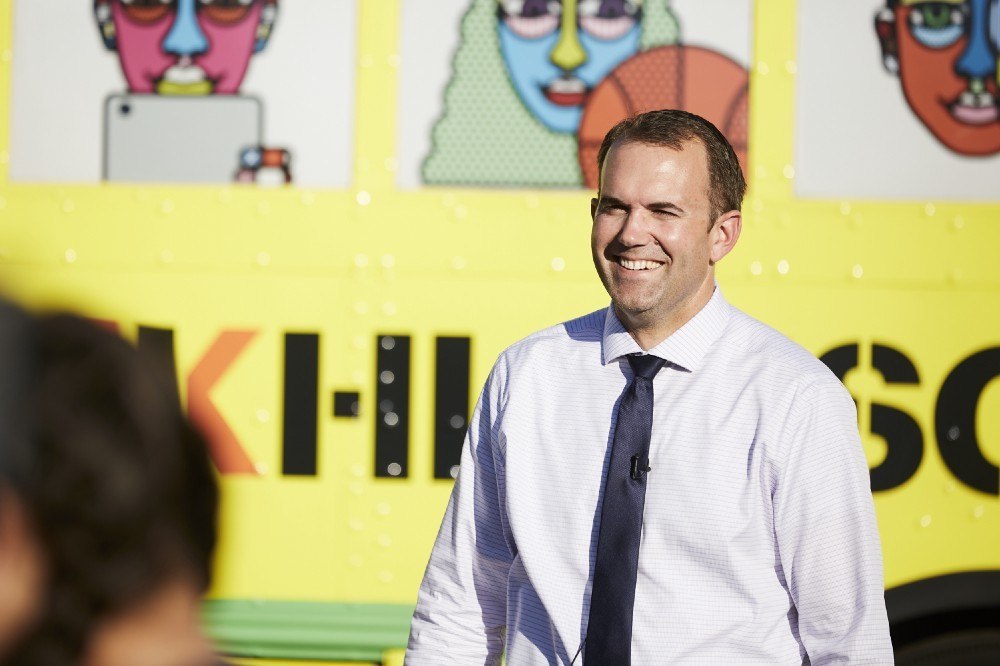Stay humble and keep learning
This school leader shares advice for teachers — and everyone else — who wants to make education a lifelong endeavor.

Advice for teachers — and everyone else — who wants to make education a lifelong endeavor
Daniel Allen, executive director of school renewal in Santa Ana Unified School District, is a co-founder of Circulos, an XQ program at Advanced Learning Academy in Santa Ana. He writes the School Made Fresh blog, “an attempt to sustain a conversation about what it takes to foster meaningful, rigorous learning for students in our public schools,” where this post originally appeared.
In education, we use phrases like master teacher, mentor, or expert teacher to describe a professional educator who has developed a wide and effective repertoire of instructional practices and classroom strategies. In a profession that doesn’t always feel like it is treated professionally, these are hard-fought skills and deserved recognitions. But they also feel dangerous.
Yes, it is important to recognize and celebrate instructional expertise. As an administrator responsible for teaching and learning across a large school district, instructional skill is one of the most valuable and needed skill sets I look for in our pursuit of dynamic, engaging learning environments and experiences for our students.
Real learning, of course, happens as we develop conceptual understanding and skills that we didn’t have before. When learning happens, it changes how and what we think. Learning builds on and sometimes replaces previous knowledge. It assumes the acquisition of something we did not know or could not do before.
While we may proclaim ourselves to be lifelong learners, the more accurate truth is that we can sometimes get comfortable in our “expertness.” We take things for granted. We may get defensive when new approaches emerge, or we may interpret new ideas as a threat to our tried-and-true practices.
The key to being a model learner is to stay humble and eagerly pursue opportunities to learn. Here are a few strategies for embracing the need to model lifelong learning.
Structure your discomfort
Learning takes time and exposure to new ideas. You need to deliberately structure time and experiences that will force you to learn new skills and consider new approaches. In the context of school, you could volunteer to take on a new club, teach an elective you haven’t had before, or take on a leadership role. Sometimes, you just have to ask for the opportunity to help. Perhaps you are a secondary teacher who would like to understand how master schedules are built, or an elementary teacher who wants to support recruitment or fundraising efforts at the school. Even little assignments can stretch you and build your skill set.
Of course I recognize that teaching every day takes a tremendous amount of energy, planning, and determination. Sometimes we may be looking for ways to buffer ourselves from additional assignments as opposed to seeking them out. Yet we know that learning requires that we place ourselves in new situations and in novel contexts. By the same token, sometimes teachers get pigeonholed into the same assignments year after year precisely because they are good at the task. Deliberately mixing it up can go a long way to encourage new learning and rejuvenate your professional aspirations along the way.
PHOTO | Chris Chandler
Question and reflect
Perhaps the most important practice in being a model learner is constantly submitting your own assumptions and practices to scrutiny and review. When I was preparing to submit a portfolio application for National Board for Professional Teaching Standards certification, I participated in a prep class where we were constantly prompted to ask the question, “I do (action), which causes students to (action), which impacts learning by (outcome)?” This simple phrase challenged me deeply to constantly articulate my theory about how my teaching choices and actions were impacting student learning. How do you know if your teaching has an impact on students? What data are you using to draw your conclusions?
I acknowledge we work in a profession where teachers constantly feel performance threat; there are dangers to being vulnerable or acknowledging gaps in performance. Teachers work with a full range of administrators, whose own instructional expertise and reflective practices vary tremendously. It can feel dangerous at times to acknowledge where we are struggling or need improvement. Yet public opportunities for reflection and learning remain essential.
Get into classrooms
That may sound ironic, owing to the fact that you already spend the bulk of your professional life in a classroom. The true irony is that in the course of a school year, you may be able to count on one hand the number of times you spent in the classroom of a colleague with the purpose of observing instructional practice and learning new skills. There are few activities as insightful to your practice as watching others teach. If you are lucky, you are at a school where practices like instructional rounds or lesson study are already in place and where you have ample opportunity to get out of your classroom to observe others. If not, then you may have to get creative on your own with a group of colleagues. I would argue that if you haven’t been in other classrooms in several months, it is urgent that you make arrangements and set aside time to learn from your colleagues — and not just via collaborative discussions. You need to see teaching and learning happening in real time.
PHOTO | Chris Chandler
Do you have stories to share from the classroom? Advice, insights, and reflections for other teachers? We want to hear from you! Become an XQ Blogger today!









